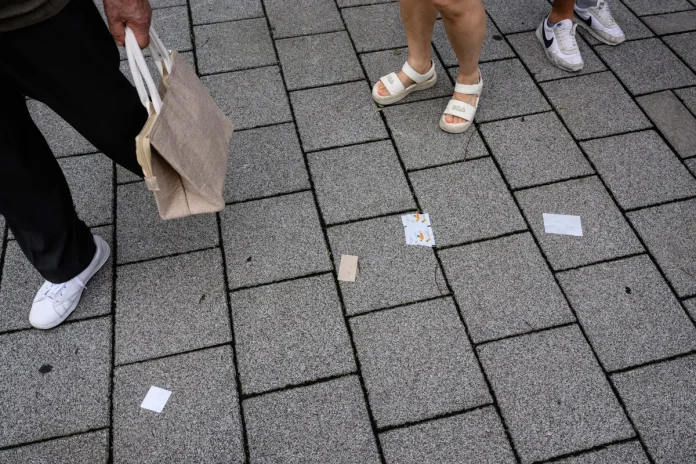South Korea on Monday warned of possible military action if North Korea continues to fly rubbish balloons across the border, a rare direct threat of retaliation since Pyongyang began sending them in May.
The latest batch of garbage-filled balloons disrupted operations at South Korea’s main Incheon International Airport for more than 90 minutes on Monday, and came amid rising tensions along the heavily militarised Korean border in recent months.
“Our military will carry out stern military measures if North Korea’s continued trash balloons seriously threaten the safety of our people or if they are deemed to have crossed the line,” South Korea’s Joint Chiefs of Staff said in a statement Monday. It declined to specify what measures were being considered.
South Korean officials have previously said they would deal harshly with the North if its people were harmed in any way, but it is unusual for officials to talk about military retaliation to rubbish balls.
Trash war
North and South Korea began using balloons to exchange propaganda messages as far back as the 1950-1953 Korean War. South Korean researcher Lee Im Ha recalls that the commander of the multinational force formed to support South Korea under the auspices of the UN, US General Douglas MacArthur, ordered to “bury enemies in leaflets,” and aircraft dropped some 2.5 billion pamphlets on North Korean and Chinese positions. Lee estimated that this was enough to cover the entire Korean peninsula with a layer of 35 leaflets. North Korean forces dropped about 30 million pamphlets on enemy positions.
The authorities of both countries organised similar actions for half a century, but at the first inter-Korean summit held in 2000, Seoul and Pyongyang agreed not to engage in propaganda against each other anymore. However, the initiative was immediately seized by numerous South Korean non-governmental organisations, often consisting of defectors from North Korea, who are trying to instigate a change of political regime in the neighbouring country. Activists also use the balloons to send religious literature, radios, flash drives with South Korean music and films, medicine, rice and small “gifts” such as pens, scarves, underwear, etc. to the North.
In 2020, when Seoul was on course to normalise relations with Pyongyang, the South Korean parliament passed a law explicitly prohibiting the dropping of propaganda leaflets over the territory of the neighbouring country. Violators faced up to three years in prison or a fine of up to 30 million won (about $22,000). But in September 2023, under the current more conservative government, South Korea’s Supreme Court ruled that the ban violated constitutionally enshrined freedom of speech, and activists resumed leafleting in North Korea.
By the end of May 2024, North Korea’s patience had apparently run out. According to Seoul, the North Korean government sent some 1,000 balloons in the week between May 28 and June 4 – 720 of them in the first days of June, despite the fact that the border between the two Koreas is considered one of the most heavily guarded in the entire world. After reaching South Korean borders, the balloons activated special detonators and dropped 10-kilogram plastic bags containing manure, cigarette butts, fabric scraps, used batteries and dirty nappies. They all fell in the vicinity of Seoul and other border regions.
